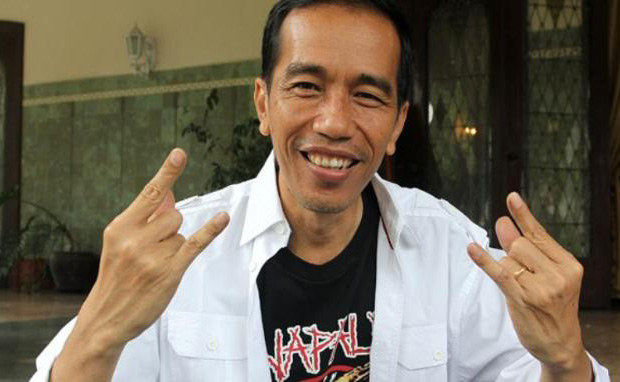Australia/Israel Review
Asia Watch: Rockin’ the House
Nov 21, 2013 | Michael Shannon

Michael Shannon
The race to succeed Susilo Bambang Yudhoyono as the next president of Indonesia in 2014 has entered an intriguing phase. While many elements remain in flux, all the talk is of a relatively inexperienced local governor who has not yet declared his intention to run but currently happens to be the most popular politician in the country by some distance.
Of course, this local governor presides over the regional district of Jakarta, a megalopolis of about 23 million people on a strip of land along the coast that is constantly threatened by flooding.
Joko “Jokowi” Widodo, 52, was only elected to his current office in September 2012, after a seven-year stint as mayor of his hometown of Surakarta. He has not had long enough in his current position to deliver on his election platform, from a planned expansion of public transportation to flood mitigation measures. But it is his way of doing things and his public manner that has resonated strongly with the prickly Jakarta populace tired of the same old plutocracy and corrupt, ineffective government.
Jokowi’s reputation preceded his arrival in Jakarta. As mayor of Surakarta, he impressed with his commitment to transparency and aversion to cronyism, winning election with more than 90% of the vote. His principled and innovative leadership attracted international attention when he was named the world’s third most effective mayor by an international think tank.
He ran in Jakarta on an anti-establishment platform and has translated this into genuine street-level rapport with his constituents. Stories abound of his frequent, unannounced visits to Jakarta’s many slums, known for their ramshackle huts, filthy canals and poor air quality. Wearing his characteristic jeans, t-shirt and baseball cap, accompanied only by an assistant, he meets people as an equal, listening to their complaints and taking notes.
The Governor is an avid heavy metal fan and also an amateur musician. When his favourite band Metallica played a concert in Jakarta, the bass player gave Jokowi an instrument with the inscription: “Keep playing that cool, funky bass.” But when Jokowi heard rumours that he may have issued a permit for the performance in return for the gift, he turned the instrument over to the anti-corruption office. The commemorative item was declared government property and will probably be sold at a charity auction.
Politically, Jokowi hails from the PDI-P, which is nationalist in origin and the party of the nation’s founding president, Sukarno. Sukarno’s daughter, former president Megawati Sukarnoputri, still chairs the party and she has the sole power to decide if the PDI-P will ask Jokowi to run as their candidate. All indications are that their relationship is good, still she will need to have great trust in him if she is going to turn over the Sukarno family’s political franchise to a novice politician.
A good fit for the relatively liberal atmosphere of Jakarta, Jokowi is a devout Muslim but does not flout his affiliation in a public way and disdains sectarianism. His lieutenant governor, Basuki Purnama, belongs to two minorities – Chinese and Christian. And when some 2,000 residents signed a petition against a local politician appointed by Jokowi – not because of incompetence, but because, as a Christian, she was supposedly “unsuitable for a primarily Muslim city district” – Jokowi prevailed to keep her in office.
How Jokowi’s style will play outside the major urban centres is the subject of much speculation, but opinion polls put him as the clear favourite in a presidential run-off. His closest rival is former General Prabowo Subianto, who is running as a populist/nationalist man of the people despite his blueblood Javanese pedigree and former links with the Suharto family. But Prabowo’s immediate hurdle is the fact that his Gerindra Party, which won 4.5% of the vote the last time around, will need a major coalition partner to get his name on the presidential ballot.
There are no independent candidates for president. A party or a coalition of parties must win either 20 percent of seats in the People’s Representative Council (DPR), the lower house of parliament, or 25% of the popular vote in the legislative elections, which are due next April.
With President Yudhoyono’s Democratic Party likely to dramatically lose seats – polls show the party running at about eight percent – Golkar shapes as one of the likely beneficiaries. It performs consistently well in DPR elections due to its superior party machinery – a legacy of its Suharto-era pre-eminence. But it is led by scandal-tainted tycoon Aburizal Bakrie, who critics allege has used politics to assist his business empire since the Suharto days, and with dismal polling numbers, some within the party are calling for him to step aside.
At any rate, Jokowi’s rise suggests that Indonesians are in no mood for business-as-usual leaders.






